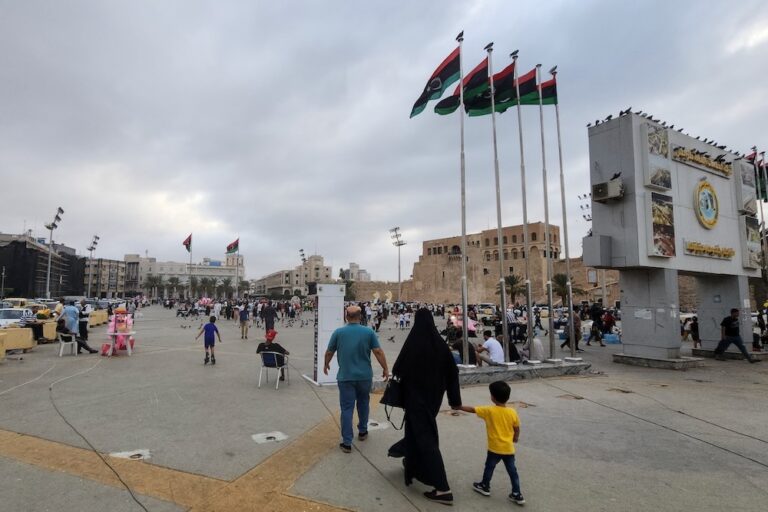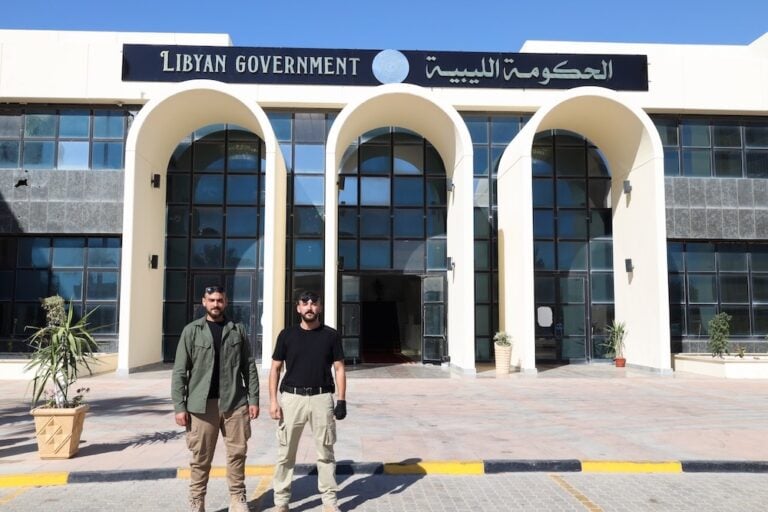(RSF/IFEX) – On 4 October 2006, Reporters Without Borders published the full report of the fact-finding visit it made to Libya from 13 to 17 September. It was first time the press freedom organisation has been able to go to Libya in 20 years. This in itself is one of the signs of the changes […]
(RSF/IFEX) – On 4 October 2006, Reporters Without Borders published the full report of the fact-finding visit it made to Libya from 13 to 17 September.
It was first time the press freedom organisation has been able to go to Libya in 20 years. This in itself is one of the signs of the changes taking place under the “Brother Leader,” Muammar Gaddafi. But despite the “relaxation,” the diplomatic U-turn and the economic opening-up since the lifting of the UN embargo, this is still one of the world’s most repressive regimes in regards to civil liberties. The Revolutionary Committees Movement – the regime’s central pillar – maintains its monopoly of power, and the press continues to be just a propaganda tool.
Aside from satellite TV stations and the Internet, the regime still controls the media and there are no independent press outlets. Col. Gaddafi’s “rebellious” son, Seif al-Islam, and the foundation he heads have launched “younger,” and more “modern” media but they still toe the line and it is still as dangerous as ever to criticize Gaddafi and his family or to tackle issues that are off-limits such as the Berbers or high-level corruption.
“In Libya, you can criticise Allah but not Gaddafi,” said one journalist speaking on condition of anonymity. The latest evidence of this was the imprisonment of cyber-dissident Abdel Razak Al Mansuri for 18 months and the murder of journalist Daif Al Ghazal in the spring of 2005. What they had in common was to have dared to criticise the man who has ruled this country for 37 years.
But times are changing. Thanks to Al-Jazeera and public Internet access points, Libyans are no longer as isolated from the rest of the world as they were in the past. They have less and less tolerance for the political cant of the official media. Many journalists are very critical when they are assured of anonymity. But fear is palpable, even among foreign press correspondents. While they can travel around with a guide or interpreter, obtaining a visa is still often an ordeal and other kinds of pressure remain.
The Union of Libyan Journalists, to which Reporters Without Borders owes its invitation, talks of “change” as something to be taken for granted, but so far its existence is purely rhetorical. The media may at last be talking about the problems of daily life and low-level corruption but they are still under the control of what is – no matter what people say – a one-party state.
It is encouraging that anti-establishment views can be heard, even from some media executives. Iconoclastic comments by Gaddafi’s son – very critical of the press and calling for the privatisation of news media – are evidence of a degree of awareness at the highest level that Libya is evolving and that the regime should accompany these changes, even if it is only to better control them.
The international community, especially the European Union, must support all those in Libya and abroad who are pushing for more freedom, including press freedom. It is vital that the international community should demand to know the truth about Daif Al Ghazal’s murder. How this case is handled will show how far the regime is really prepared to go to put an end to what was its darkest side.
Beyond the high-sounding and often sincere declarations, in the view of Reporters Without Borders, only the appearance of privately-owned and really independent news media will allow us to talk of real change in Libya. This is not yet the case.
The full report is available on the Reporters Without Borders website ( http://www.rsf.org ).


